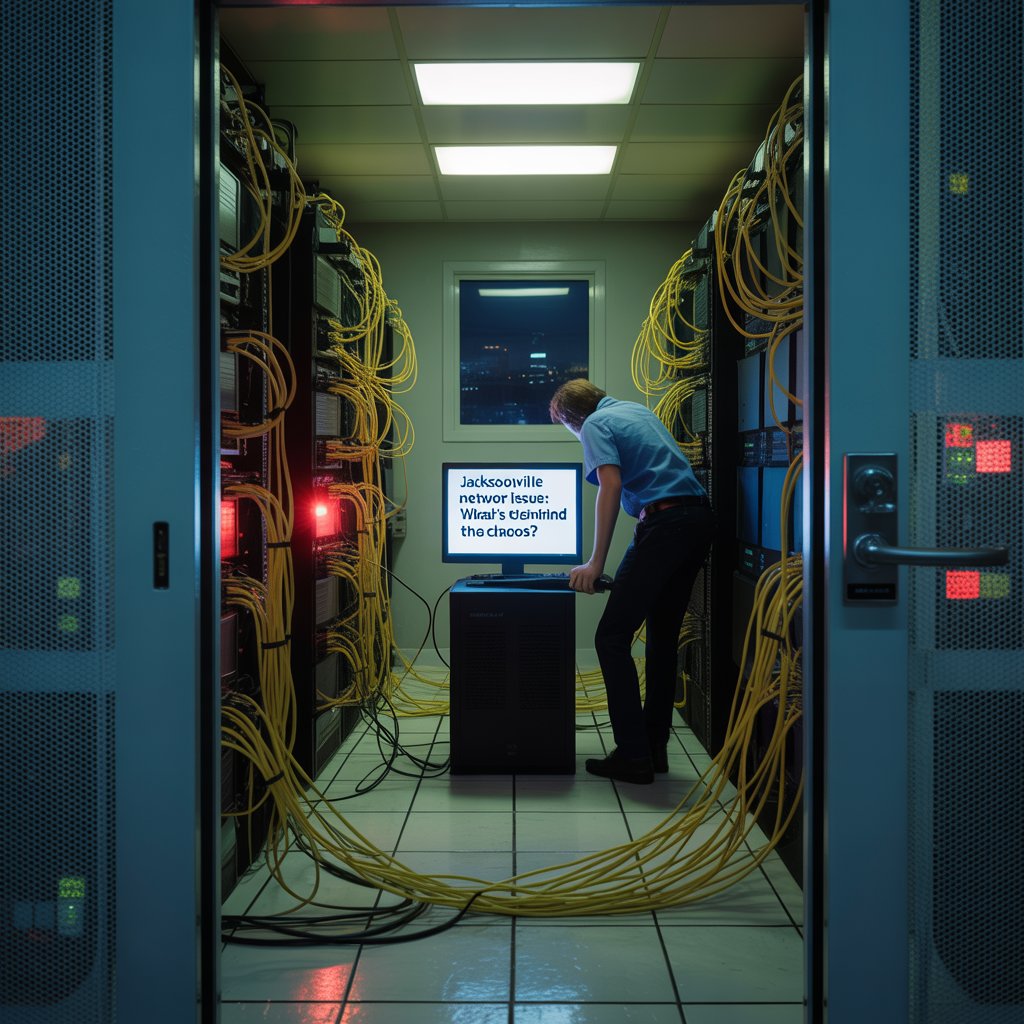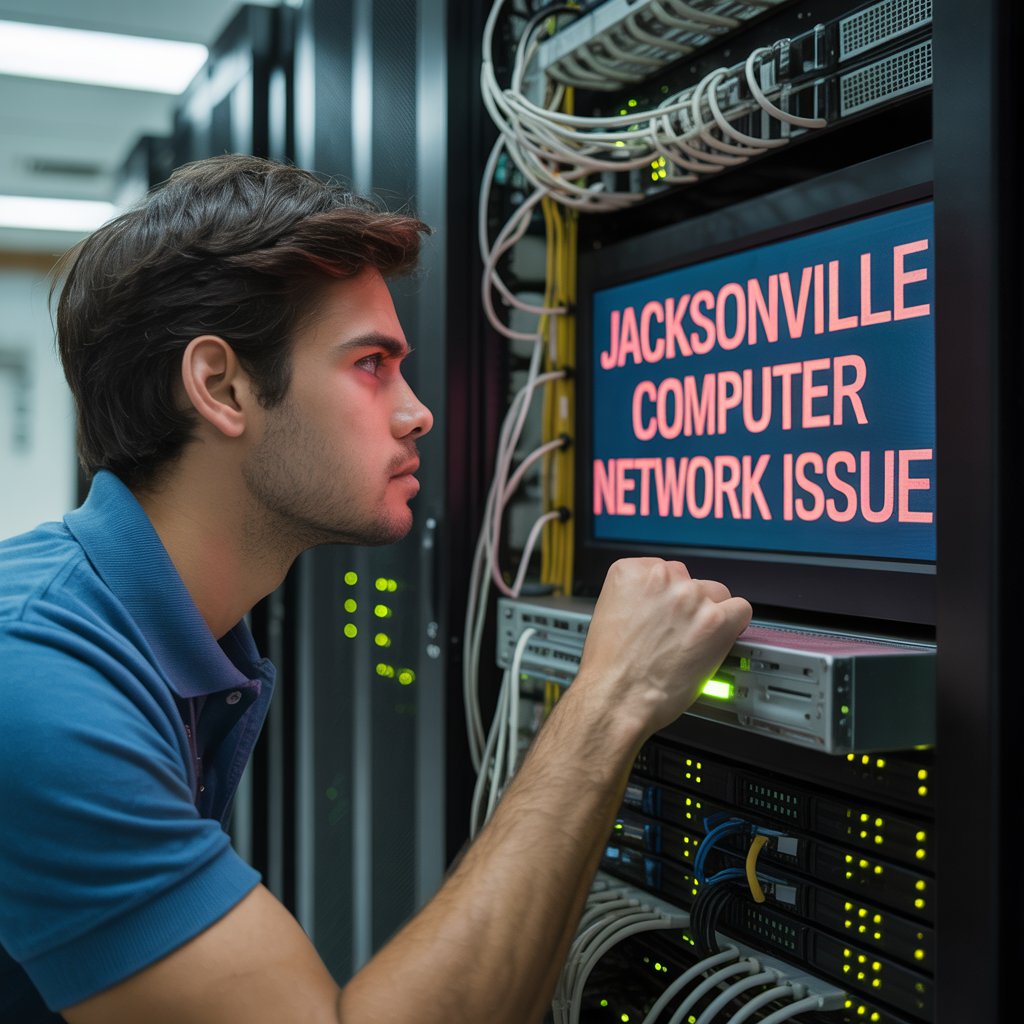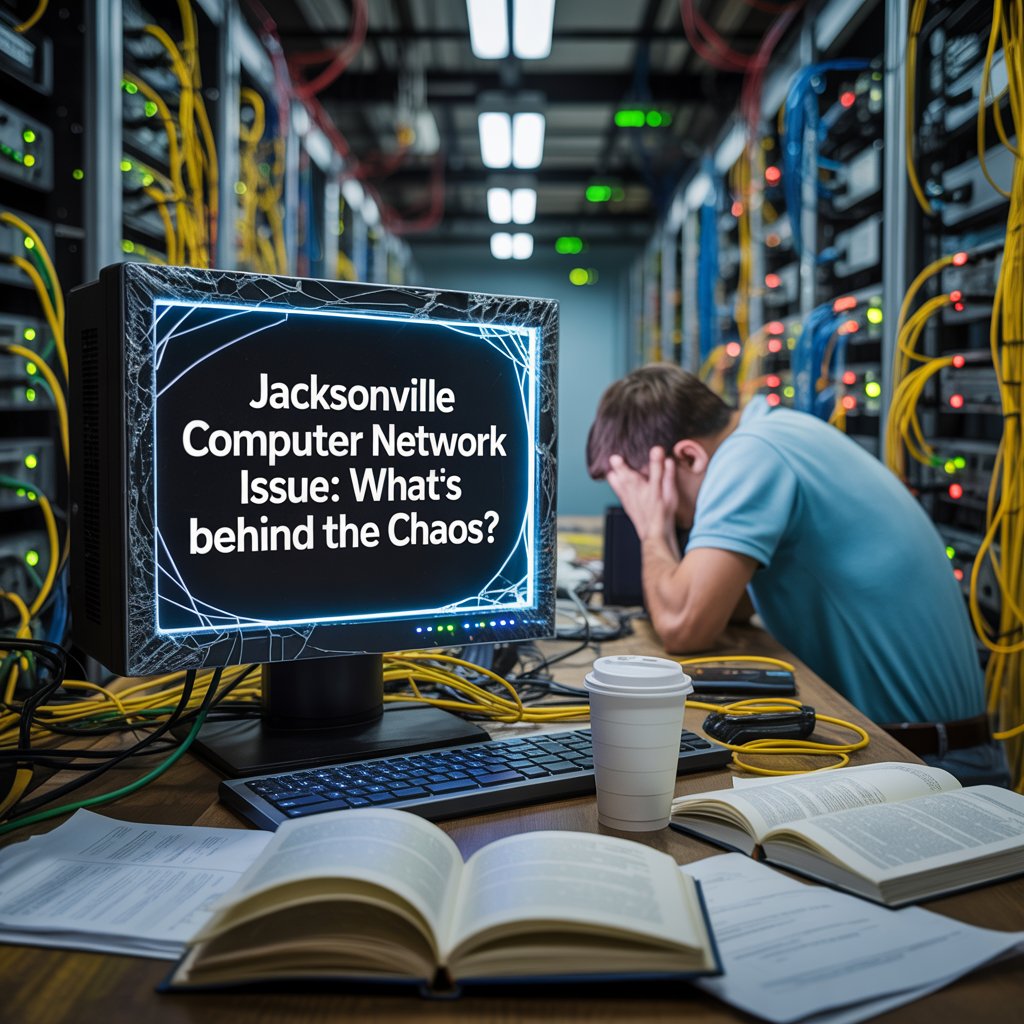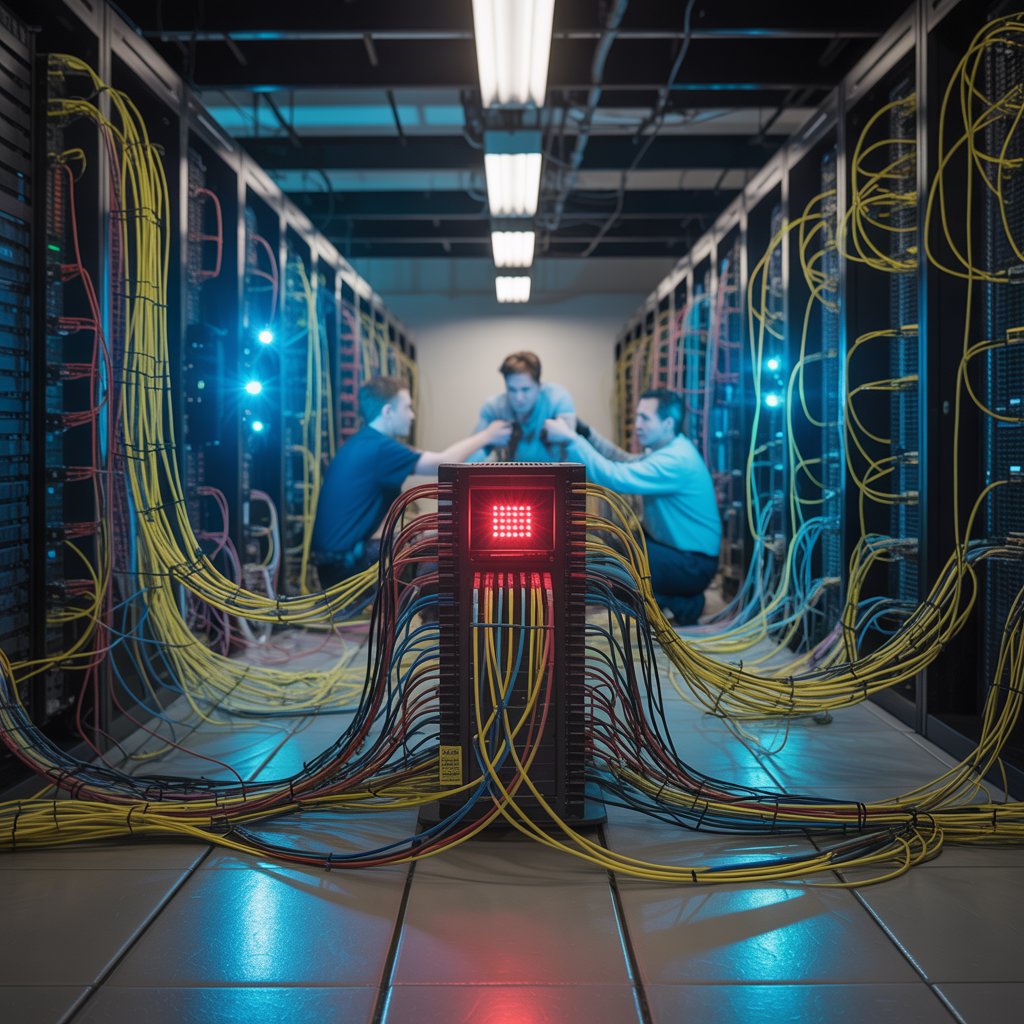Trouble in the Network
Jacksonville is no stranger to fast-paced business, modern tech, and growing infrastructure. But recently, the Jacksonville computer network issue has raised eyebrows among users, businesses, and IT professionals alike. It’s more than just a glitch—it’s a disruption that’s impacting daily operations, communication, and productivity across sectors. What’s causing it, and how can it be resolved sustainably?
Table of Contents
The Heart of the Problem
Network issues in Jacksonville didn’t appear overnight. They’ve built up over time through several underlying causes. In many cases, outdated infrastructure has not kept pace with the digital demands of expanding businesses. Old routers, overloaded servers, and poorly maintained cabling systems lead to sluggish or dropped connections.
Interference from new building developments, especially in the downtown core, can also interrupt signals. Add to that a lack of skilled network technicians, and the problem only worsens. The Jacksonville computer network issue is not just about broken hardware—it’s about a system under pressure.

Why It Matters to Everyone
This isn’t just a problem for IT departments. Schools, hospitals, retail stores, and logistics companies all rely on stable internet connections. When the network fails, learning pauses, deliveries delay, and digital payments stall. Jacksonville’s economy is deeply connected to digital infrastructure. When the network struggles, so does everything else.
This also becomes a public trust issue. Residents begin to question the dependability of local service providers and city planners. If communication networks are unreliable, it affects public services, emergency response systems, and even virtual court hearings.
Who’s Responsible?
Responsibility lies across a broad spectrum. Internet Service Providers (ISPs) need to ensure their systems are equipped for modern demand. At the same time, business owners and homeowners must maintain and upgrade their networking hardware. In some cases, government oversight and urban development plans must consider the long-term effects on local connectivity.
The Jacksonville computer network issue is a shared problem that requires cooperation from both public and private sectors. No single organization can resolve it alone, but working in silos only delays recovery.
The Eco-Friendly Angle
Addressing this issue presents a chance for Jacksonville to lead in eco-friendly tech upgrades. Replacing outdated hardware with energy-efficient equipment reduces power usage and carbon emissions. Cloud-based infrastructure can also be more sustainable when used correctly.
Old devices don’t need to go to landfills. E-waste recycling programs can transform obsolete machines into reusable materials. A green solution is not only possible—it’s practical and beneficial for the long-term health of the city.

Smart Solutions That Work
Jacksonville can take inspiration from other cities that have faced similar problems. Building a fiber-optic backbone, for example, offers faster, more reliable service than traditional copper lines. Investing in 5G infrastructure can further support mobile and remote workers.
Another smart move is introducing public-private partnerships. These arrangements can pool resources from tech companies, city governments, and local businesses. Together, they can create long-term strategies to prevent recurring disruptions.
Implementing real-time monitoring systems would also help detect outages before they escalate. Preventative maintenance is cheaper and more efficient than emergency repairs.
Is Cybersecurity Part of the Issue?
Absolutely. Cybersecurity and network performance go hand-in-hand. A poorly protected network invites malware, ransomware, and DDoS attacks—all of which can cripple operations. In some recent incidents, parts of the Jacksonville computer network issue were tied to compromised systems.
Cybersecurity must become a core part of any solution. Firewalls, encrypted data, and regular audits are essential. Training staff to recognize phishing attempts is just as important as having antivirus software installed.
What’s Being Done Right Now?
Some service providers have started pilot programs to roll out fiber networks in select neighborhoods. Local businesses have begun upgrading their routers and using cloud systems to bypass localized outages. Municipal efforts are under way to map high-risk areas with repeated network failures.
Still, progress is slow. Many residents feel out of the loop. Transparency is key. Sharing plans, timelines, and updates builds public trust and prepares users for changes ahead.
Can It Be Fixed?
Yes—but it requires consistency, not quick fixes. The Jacksonville computer network issue can be resolved with a step-by-step approach: identify root causes, invest in infrastructure, train professionals, and maintain systems actively. It’s not a one-time investment but an ongoing commitment.
The city must also future-proof its network against rising data demands. With more smart homes, streaming services, remote jobs, and cloud computing, today’s solution won’t last forever.

What Should You Do?
If you’re experiencing issues, document the patterns. When does your network slow down? Are there specific applications that crash? Report this to your service provider and follow up if necessary. Upgrade your own hardware if it’s outdated. Check cables, routers, and security settings. Sometimes the solution starts at home.
Local businesses should consider bringing in network consultants to assess their setup. Simple changes in router positioning or server configuration can drastically improve performance. Don’t wait until downtime costs you money.
Also read: InfluencersGinewuld: Is This the Smart Future of Influencer Marketing?
Final Thoughts
The Jacksonville computer network issue is more than a local inconvenience—it’s a challenge to the city’s growth and reliability. Solving it will take bold steps, collaborative action, and a clear focus on sustainability. The sooner it’s addressed, the faster Jacksonville can reclaim its position as a forward-moving, connected community.
Reliable networks are not a luxury—they’re a necessity. Whether you’re running a business, attending virtual classes, or just trying to stream your favorite show, your connection should never be in question.


